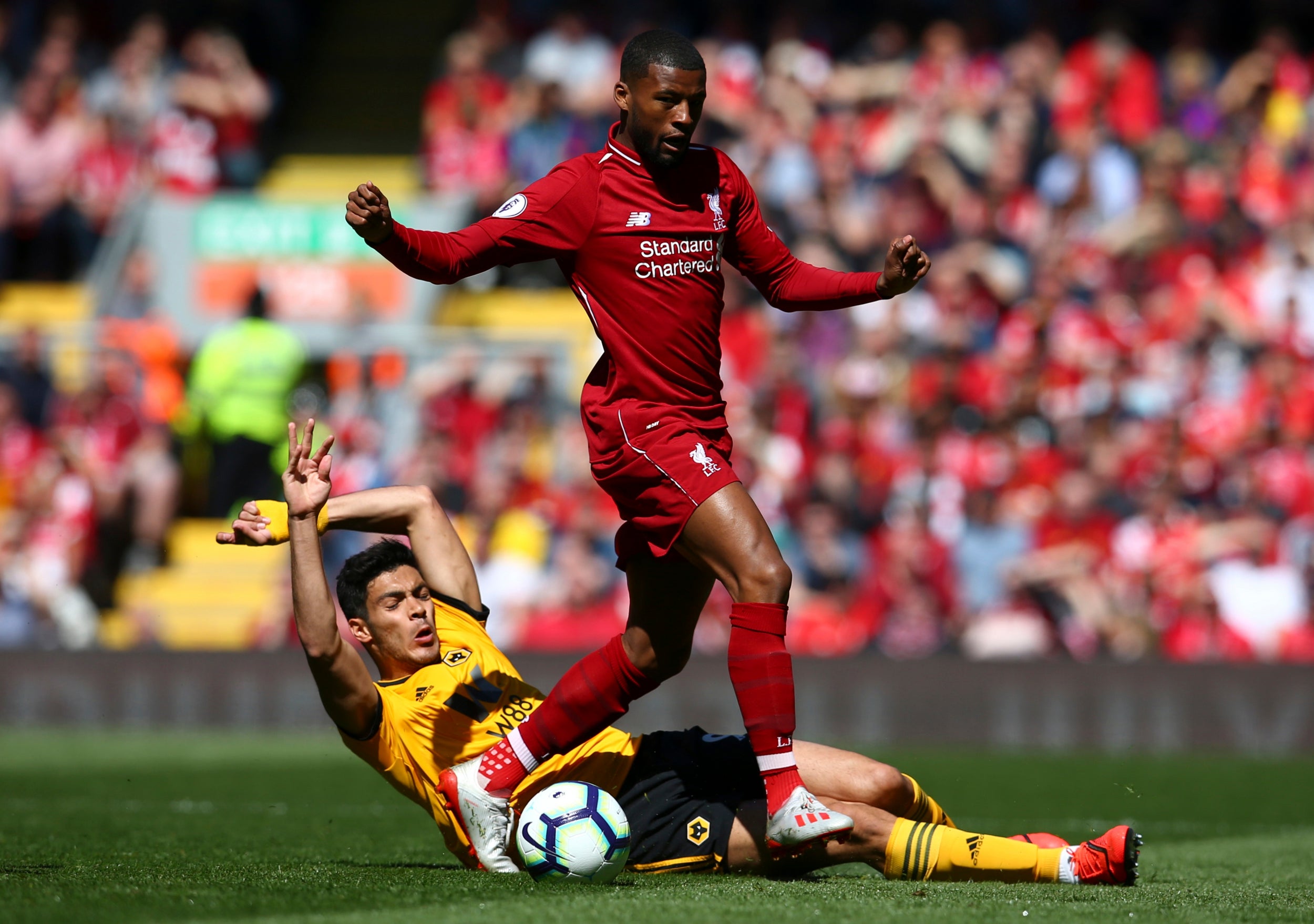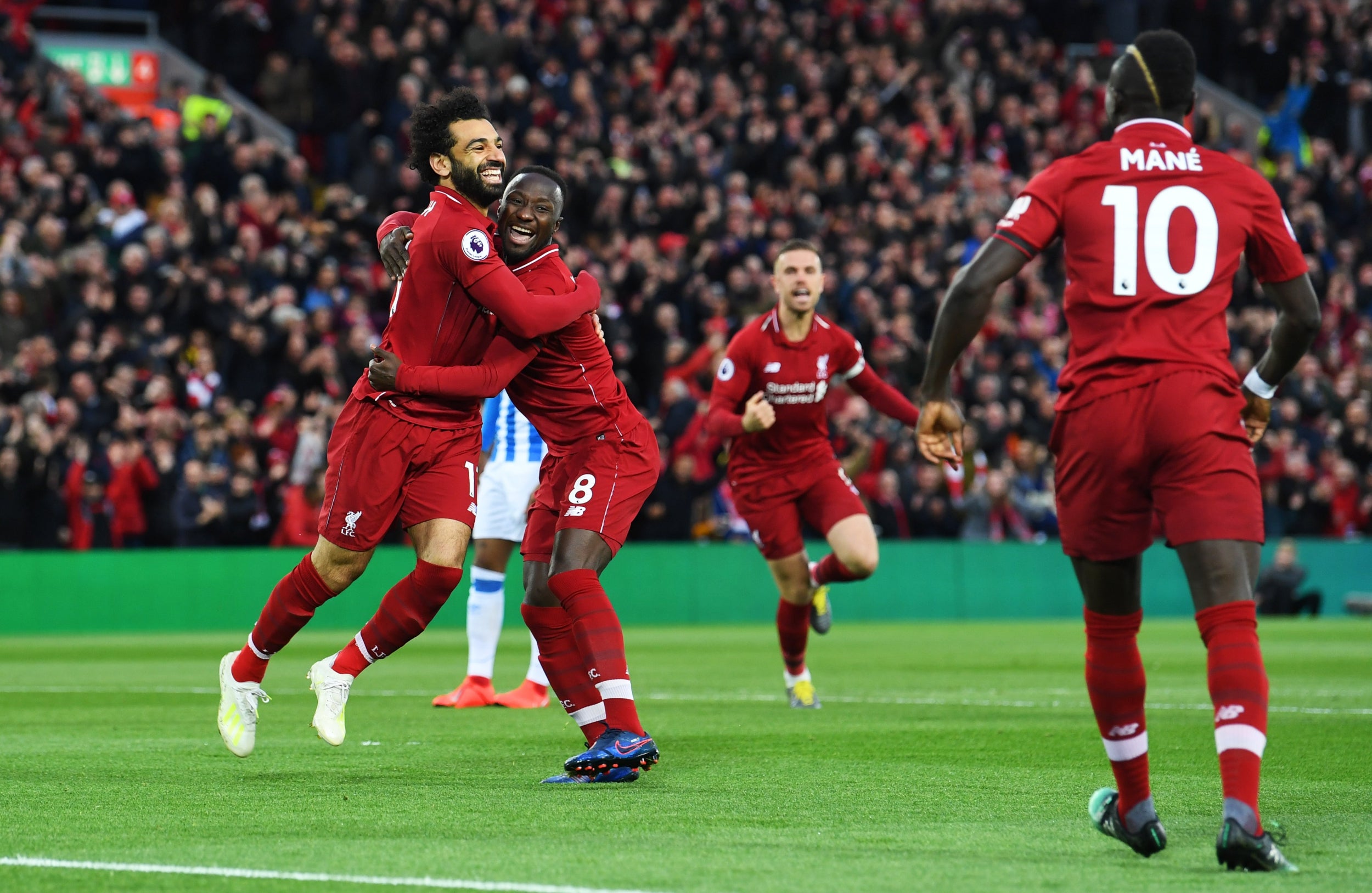Liverpool’s ‘beautiful failure’: What Jurgen Klopp can learn from missing out on the Premier League title
They pushed Manchester City to the limit, but they did it while there was still significant room for improvement in their own side

Your support helps us to tell the story
From reproductive rights to climate change to Big Tech, The Independent is on the ground when the story is developing. Whether it's investigating the financials of Elon Musk's pro-Trump PAC or producing our latest documentary, 'The A Word', which shines a light on the American women fighting for reproductive rights, we know how important it is to parse out the facts from the messaging.
At such a critical moment in US history, we need reporters on the ground. Your donation allows us to keep sending journalists to speak to both sides of the story.
The Independent is trusted by Americans across the entire political spectrum. And unlike many other quality news outlets, we choose not to lock Americans out of our reporting and analysis with paywalls. We believe quality journalism should be available to everyone, paid for by those who can afford it.
Your support makes all the difference.It was an emotional reaction that said more than any words. As the final whistle went on Liverpool’s 2-0 win over Wolves, there were were none of the usual forlorn responses when it is confirmed a team is finishing second after a long and energy-sapping title challenge. There was no one falling to their knees, no hunched shoulders, no tears.
There were really only cheers, and a sense of celebration, as well as spirited defiance.
Some of that was because it has long been accepted Manchester City would likely win all their remaining games, some of it was because they still have the Champions League final to give their efforts meaning, but most of it was because Liverpool did almost all they could.
It was, to quote Jurgen Klopp, “beautiful failure”.
There is a rightful sense of pride that they have so overachieved, that they have pushed City so far. They brought a race with the side who have accumulated more points than anyone in history right down to the thinnest of margins: the final match, one point, and 11 millimetres.
Within those thin margins comes what would usually be the potential for massive regret. Those 11 millimetres of course represent the amount of the ball that didn’t go over the line in that January defeat to Manchester City, their only league loss all season. On the basic maths at least, that match ended up costing Liverpool not only the the title, but a centurion season and an invincible season.
There’s then the last game that cost them the initiative in the race, and what is now the final turning point. That was the 0-0 draw at Everton at Goodison Park, a result their neighbours are now relishing.
It says much more that none of this is really registering for Liverpool. None of this is the source of deep pain. Klopp is too insistent on looking forward, on focusing on positives, and those positives are too abundant. That has spread around the entire club.
If they understandably don’t want to dwell on any negligible regrets from this season, though, that isn’t to say there isn’t something to learn from. Liverpool have done almost all they could, but not everything, and haven’t quite been perfect.
The only possible overall analysis of the season is that they have been exceptional, but there are still some elements you can extract to examine and improve upon – so that they can finally fulfil all this promise next season.

One comes from the period that probably most cost them. It is genuinely the point that Pep Guardiola thinks most saved City. Liverpool had the chance to go seven points clear against Leicester City in January, only to be pegged back 1-1, with that the first of four draws in six.
They had the chance to kill the champions off, and froze, in what were mostly winnable games – especially those against Leicester and West Ham United. Everton and Manchester United were meanwhile going through very vulnerable moments, either in terms of bad form or a bad injury list. Liverpool responded with strikingly laborious displays.
It’s also not like these were just natural drop-offs or inevitable coincidences that come in a season when you’re mostly operating at an immense pace. They were more specific to the circumstances than that, more a consequence of the context of those games.
There was a palpable nervous tension in all of those matches, a rare period when Liverpool seemed to be over-thinking every moment. They were hesitant. They did not seize the moment. They thereby didn’t get to seize the trophy.
It might feel brutally harsh to point this out but, as Klopp himself has admitted, this is the brutal reality of a title race with Pep Guardiola’s super-funded side.
“As long as City are around, with the quality and financial power they have, no other team will pass them easily,” the German said on Sunday. “So we need to be very, very close to perfection to win the Premier League.”
Liverpool were very far from perfect in that spell, and very far from their best. The repeated warning at the time was that this was the chance, that this would cost them. So it proved. City were energised by it, and immediately embarked on that decisive 14-game winning run.
Of course, the reason that spell remains so costly is because Liverpool themselves responded with a nine-game winning run of their own – and that under the most intense pressure.

That suggests they already learnt the lessons of that nervous spring spell. They already internalised how to deal with that tension. How else to explain their relentlessness thereafter, or the ability to pull off rousing results like that against Barcelona?
There’s also the fact that this spell wasn’t all about nerve. It is about physical bodies, and the fitness of players at the time. In three of those matches, with Trent Alexander-Arnold out, Jordan Henderson and James Milner had to alternate at right-back. Roberto Firmino meanwhile could only start on the bench against Everton.
And that is all while Klopp endlessly shuffled with his midfield. What remains remarkable about Liverpool’s season was that the team’s primary engine room probably never had a primary trio. It was all a bit… makeshift.
There are thereby obvious areas for the team to improve, in terms of depth in defence, and outright quality in the middle. Naby Keita meanwhile didn’t really settle to show his form until late into the season, so there is likely much more to come from him.
It is why, as Klopp also argued, there may be much more to come from Liverpool. It is why this “beautiful failure” might be even more encouraging: they pushed City to the limit, but they did it while there was still significant room for improvement in their own side.
And sure, they might have got lucky in some crucial moments, but a fact of football – as the champions have proved – is that greater squad depth similarly erodes the very reliance on luck.
“This team is not the the finished article,” Klopp surmised on Sunday. “We have to build again.”
It is why no one really needed building up when the league season finished.
They may have at one point lost their nerve to decisive lose the lead, but may yet earn a lot more out of it in the long term. The reaction will say it all.
Join our commenting forum
Join thought-provoking conversations, follow other Independent readers and see their replies
Comments